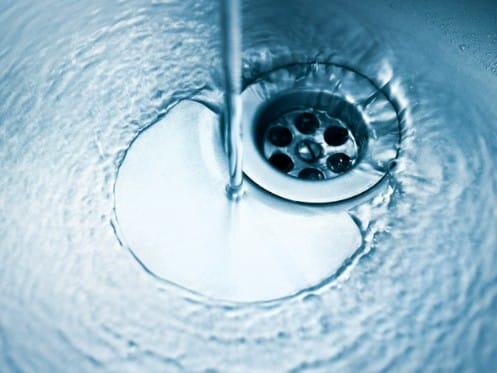One of the best ways to enhance your Tacoma, WA home is by having a whole-house water filter installed. Whole-house water filtration systems are significantly more effective at improving water quality than simple, countertop water filters. More importantly, these systems purify water at every tap. For homeowners, this means having clean, healthy water for cooking, bathing, consumption, and more. Read on to find out if a whole-house water filter is right for you.
You’re Spending a Veritable Fortune on Water Filters
Low-cost countertop water filters aren’t as affordable as they initially seem. If you have a busy, bustling household, these units probably need refilled all of the time. Rapid refilling quickly depletes the lifespans of these filters, and the costs of increasingly frequent filter changes add up fast.
Although countertop filtration systems are more convenient and better for the environment than stocking up on bottled water, they’re not necessarily cheaper. This is especially true if you use these units to filter water for both drinking and cooking. With most filter replacements costing between $10 and $15, and replacement filters for high-end units costing between $50 and $100, having a whole-house water filter is often the most cost-effective choice over time.
Your Household Often Has Tummy Troubles
One of the biggest drawbacks of countertop water filtration is that the potential for introducing harmful bacteria during filter changes always exists. This is also one of the many open secrets of the countertop water filter industry. If dirty hands or dirty surfaces contaminate a filter during installation, all of the water that flows through it will be contaminated as well.
This is very problematic with the filtered water bottles that are manufactured and sold by the same companies offering countertop units. If people in your household regularly contend with nausea, diarrhea, or vomiting, it’s probably the result of a dirty, contaminated filtration unit. What you’ve been writing off as the stomach flu may lead right back to the very same vessels that “clean” and store your water.
Whole-house water filters are largely hands-free systems. All of the water that you need is distributed at the point of use rather than stored. It’s also moving water rather than water that sits stagnant in a container until someone actually uses it. More importantly, you don’t have to worry about having teenagers, distracted adults, or young children replacing filters after they’ve left the bathroom or handled germ-ridden cellphones. Most whole-house water filters only require filter replacements every three to six months. Some only need changing once annually during their yearly maintenance service.
You’re Concerned About the Chemicals Used in Water Treatment Processes
Whether you’re relying on a filtration unit that’s built into your refrigerator or one that sits on top of your counter, it probably isn’t removing many of the contaminants that are cause for major concern. Municipal water treatment processes are aimed at removing deadly germs. Unfortunately, they introduce many potent, sanitizing agents along the way, including chlorine, chloramine, and chlorine dioxide.
Not only are the effects of chloramine and chlorine exposure cumulative, but they’re also widespread. These chemicals have an impact on your health and the health of everyone else in your household whether people are drinking unfiltered or poorly filtered water, cooking with it, or showering in it.
Municipally treated water supplies also contain generous amounts of fluoride. Although there are strong arguments for using fluoridated water as a public health measure for improving oral health, there are equally strong arguments against it. Research shows that oral consumption of fluoride alters both brain density and bone density. It also calcifies the pineal gland.
For these and other reasons, the practice of fluoridating municipally treated water has been outlawed by numerous countries, including Northern Ireland, France, Germany, Hungary, Sweden, and Norway. There are even many cities throughout the United States that have stopped the practice as well due to both immediate and long-term health concerns. Among these are San Jose, CA, Wichita, KS, Tucson, AZ, and Portland, OR. While the American Dental Association (ADA) is in support of water fluoridation, many dental experts assert that fluoride is only beneficial to the teeth when applied as a topical application rather than consumed.
If you want the best possible benefits from water filtration, it’s important to start with a filter that can eliminate chlorine, chloramine, fluoride, and the many other chemicals that are introduced as part of municipal water treatment. Unfortunately, countertop water filters and in-refrigerator filtration units fall woefully short in this area.
You Want Healthier Skin, Hair, and Lungs
If you have dry, brittle hair, easily irritated skin, or a persistent cough, but lack a medical diagnosis for explaining your symptoms, the water that you’re bathing and showering in could be the cause. The same chemicals that negatively affect your health when consumed also have an impact on your well-being and appearance when you soak in them and breathe them in. Chlorine, chloramine, and chlorine dioxide are all associated with hair breakage, hair fall, skin irritation, and other common issues when exposure is continuous and prolonged.
When you turn on a hot steamy, shower in your home, you aren’t just washing yourself in these chemicals, you’re also inhaling them. These aren’t issues that countertop water filters can prevent. Installing a whole-house water filter could result in fewer skin, scalp, hair, and respiratory troubles.
You Hate the Way Your Water Tastes and Smells
Drinking the oft-recommended eight glasses a day isn’t easy when the very sight and smell of your tap water repulses you. Some people have far more sensitive noses than others. For these individuals, tap water often smells like swimming pool water or water that’s held within toilet tanks. If smell is an indication of what something tastes like, for those with sensitive noses, choking even a single glass of tap water down could be an exercise in self-torture.
A whole-house water filter will treat all of your home’s water. This level of filtration will leave your water smelling better and tasting a lot fresher. Whether you fill a drinking glass at the kitchen sink or take a gulp from the backyard hose, the water that you get will be clean and taste good. If you water your plants from the tap, even your indoor plants will benefit from this important home addition.
After your installation is complete, you’ll also be able to easily source clean, potable water for all of your cooking projects. In fact, you’ll even have more control over how your dishes come out. For the aspiring chef, there’s no understating the impact that chlorine, chloramine, and other water treatment chemicals have on bread dough, soups, cakes, and more.
You’re Ready for a Simple, Set-It-and-Forget-It Solution
Without whole-house water filters, people often find themselves making constant trips to the store. Many families are lugging their own five-gallon jugs into their homes or paying small fortunes for replaceable, under-performing filters. Whole-house water filters are infinitely more convenient, more cost-effective over time, and much easier to maintain and use.
We proudly serve residents throughout Tacoma, WA and the surrounding King County and Pierce County communities. We offer plumbing, drain cleaning, HVAC, and electrical services. We also supply and install whole-house water filters. To find out more or to get started, contact Hunt’s Services now.




